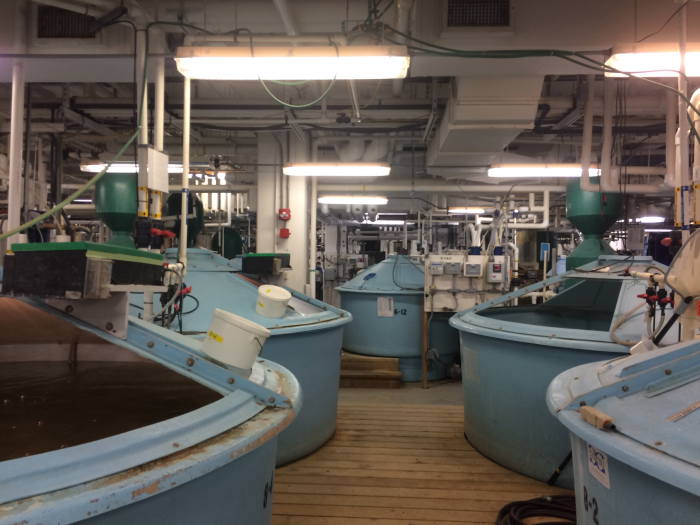





Steve Rodgers is the lab manager at the Aquaculture Research Center of the Institute of Marine and Environmental Technology, part of the University of Maryland, Baltimore County (UMBC). The lab had an existing alarm system with a phone dialer that would call and tell staffers that there was a dissolved-oxygen alarm or temperature alarm. Someone from the lab would have to respond to the lab to see what the actual alarm condition was. The system uses CR1000 dataloggers, MD485 interfaces, and AM16/32 multiplexers.
UMBC had a study done that showed deficiencies in the lab monitoring system, and needed to address them. Campbell Scientific’s main office put Steve Rodgers in touch with David Adams of Adams Environmental, a long-time integrator of Campbell Scientific products.
After several site visits and many discussions, Steve and David put together a new alarm system, with a complete system wiring diagram. With the new system, the staff can enable and disable alarms and change alarm high and low set points on the lab PC, as well as over the Internet and on their smartphones. They also receive email and text-message alarms providing the time, the tank, and the offending alarm. The system is capable of handling multiple alarms in one message.
Adams Environmental has supported the system over the years, replacing numerous old obsolete sensors with new ones, and redoing design, wiring, and installation without disturbing the fish, which is of utmost importance. Adams Environmental also upgraded a freezer alarm system on the fifth floor of the lab with the same type of system.